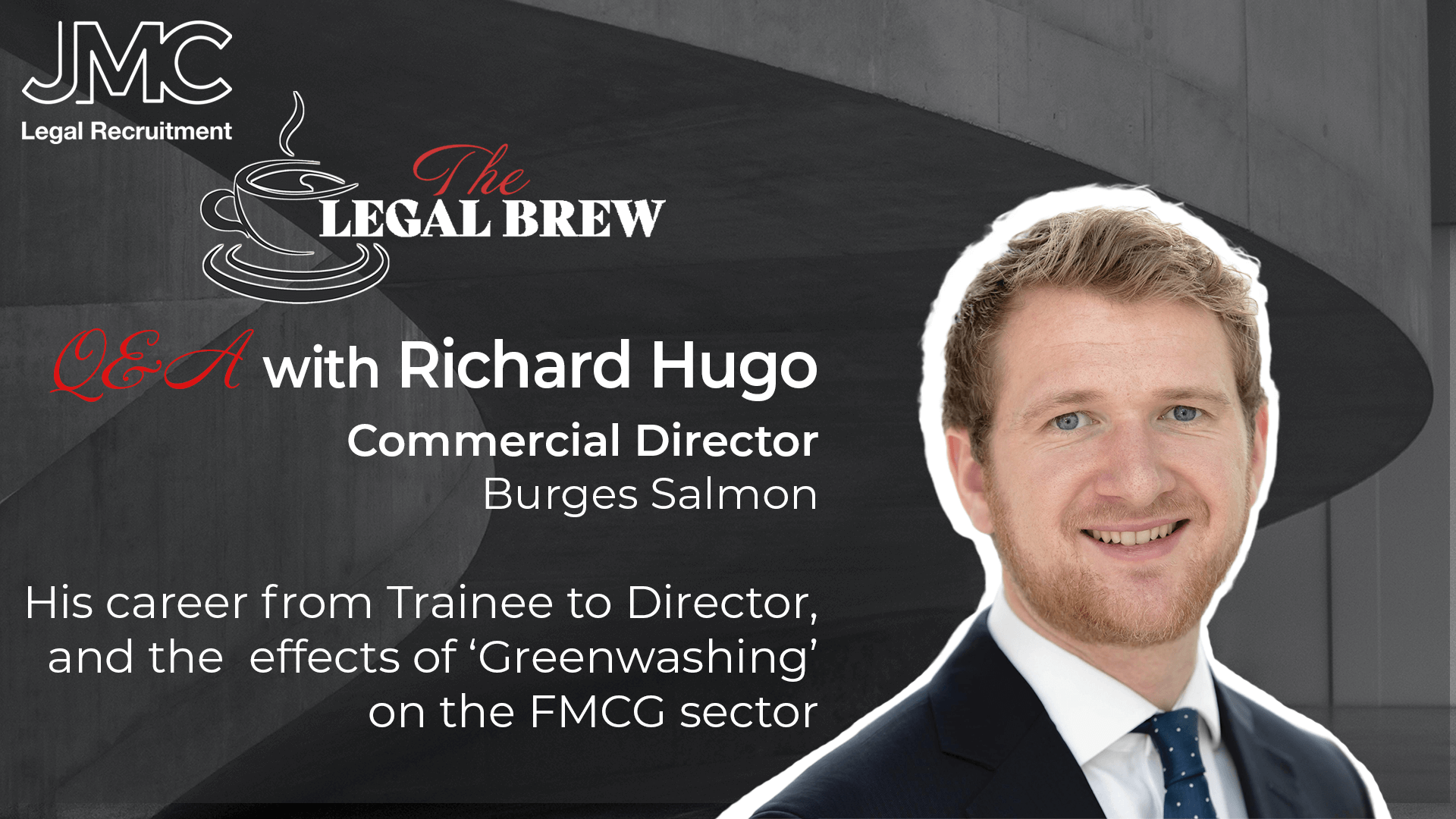
The Legal Brew with Richard Hugo
19 Apr, 20248 minutes
- Please tell us about you and your role at Burges Salmon. What inspired you to specialise in commercial law, particularly focusing on sectors such as retail, media, leisure, food and drink? Were there specific moments or interests that drew you to these areas?
I’m a Director in the Commercial team, advising businesses primarily on commercial contracts, consumer and advertising matters. From early on in my training contract I was attracted to commercial law by the range and diversity of issues – everyday really is different which keeps it interesting. The work is also very collaborative, working closely with clients to try and achieve their goals, be that launch a product, a campaign, or enter a new supply arrangement. Even in negotiations the parties are generally entering a new relationship and want to reach a positive conclusion. I always enjoyed helping them to do that.
- As someone with expertise across various industries, what advice would you give to solicitors who are early in their careers and considering specialising in commercial law? How can they best prepare themselves for success in this field?
The term commercial law is used widely and covers an array of types of work, so there is lots of variety, but also potential to focus on areas that resonate with you, or fit your skills – be that contract drafting, or providing support on regulatory issues – or to apply the skills to a sector you enjoy. It is great to experience lots of areas and learn from as many people as you can. There is always something to be gained and it will make you a more rounded lawyer and advisor. I think it is also helpful to stay curious – look to investigate and understand any aspects that are new to you.
- Throughout your career, you've advised a diverse range of clients on complex legal matters. What skills or qualities do you believe are essential for solicitors to excel in commercial law and effectively serve their clients' needs?
A strong technical grounding will provide a great foundation to develop your skills, provide confidence and help you progress. Beyond that, it’s a commonly repeated point, but focussing on your client’s needs – putting yourself in their shoes as to what they are trying to achieve, how they would want to receive advice, or what would be most useful for them is really important. The more you can get to know your client, their industry or sector, then the more targeted you can be in supporting them.
- Transitioning from advising clients on legal matters to assuming a leadership role as a director involves a significant shift in responsibilities. What adjustments or insights have you gained through this transition, and how do you balance your legal expertise with managerial duties?
My experience in assuming my current role has been a gradual one, through becoming a trainee supervisor, adopting a more supportive role to junior lawyers, and becoming a Director. So, whilst different roles have required development of new skills and responsibilities, there have rarely been sharp adjustments but rather a gentle transition as you develop those skills and others see you in that role and rely on your support and supervision. Often it’s only with hindsight that you really notice any change. The increased pressure on time creates challenge but forces you to prioritise well - ensuring you are taking other’s priorities into account in that assessment, and respecting everyone’s time, are key.
- Drawing from your experiences working with notable clients like John Lewis and Waitrose, what lessons have you learned about building and maintaining successful client relationships in the legal industry?
I would say relationships are at the core of what we do. Whether that is with clients, colleagues or other parties, they generally rely on a foundation of trust – having confidence that matters will be handled reliably and correctly. If you can get along on a personal level, that is a great help too - people resonate with those with shared values.
- If you could offer one piece of advice to new solicitors embarking on their legal careers, what would it be? Based on your own journey, what lessons or principles do you believe are essential for long-term success in law?
Don’t be afraid to get out of your comfort zone – or rather, if you’re afraid, do it anyway! Doing things for the first time (or sometimes the hundredth time) can be daunting, but this is when you will develop the most and you may just surprise yourself.
I also think it’s important for senior leaders and teams to create a supportive environment which gives solicitors the confidence to be able to take those steps. As one Partner told me early in my career– it’s easier to keep swimming if you know there is someone on the side of the pool holding a life-ring!
- The CMA's recent scrutiny of Unilever's green claims highlights the growing importance of transparency in marketing practices. How can businesses strike a balance between promoting their environmental initiatives and avoiding the pitfalls of greenwashing?
The CMA and ASA have made green claims a priority recently as shown by the CMA’s investigation in the FMCG sector and a previous investigation into claims by three fashion retailers which recently resulted in undertakings from all the retailers concerned. The ASA is also using an AI based active ad monitoring system to identify non-compliant claims. It is clear that consumers are becoming more aware of products’ environmental credentials, and factoring this into their purchasing decisions, so it is natural that marketing teams will want to demonstrate positive environmental benefits. However, it is important for brands to be careful when making claims as it can be very easy to overstate or mislead consumers (often accidentally). In short, brands should be clear, accurate and verifiable in making claims.
One consistent issue is that whilst businesses may make claims they believe to be accurate, and may well be, it is necessary to have the evidence to back up any claim. This has become a common theme in the ASA’s decisions, so it is important to collate and record information to back up any claims, and not stray beyond the evidenced position. We have also seen a willingness for the ASA to take account of a business’ wider impact where it considers a standalone claim – which may be verifiable on its own – creates an overall misleading impression to consumers. This is particularly the case in sectors which are viewed as having particularly negative environmental impacts.
If qualifying information is needed in respect of a claim then it’s important that this is clearly associated to the ad and viewable by consumers. Equally use of imagery is also relevant where it gives an impression of being ‘green’ so it’s important to consider the impression of the imagery, branding, packaging or advert overall, and not just focus on written claims. View any materials through the customer’s eyes and don’t assume any prior knowledge relating to claims.
- Social media influencer marketing has become a prominent strategy for many brands. In light of the CMA's scrutiny on green claims, how do you advise clients to ensure that influencer campaigns remain compliant?
Ensuring compliance when using third party talent has always been an issue for brands, and this has increased in the social media context. To protect against issues which may have regulatory, financial or reputational implications it is important to manage risks closely. In general, we would suggest it is important to have clear contracting, not just in the sense of clearly allocating obligations and requiring compliance, but supporting talent you are engaging in achieving that. Where you are promoting specific elements or making specific claims through an influencer campaign, those claims (whether they are green credentials or otherwise) should be clear and approved to avoid accidental non-compliance. However, beyond the contractual position, taking time to identify the right talent for your brand, having good communication and clear agreement on the output will all help to minimise risk. However, this can create challenges where brands or talent are looking to generate organic content.
- The CMA's investigation into green claims emphasises the need for robust evidence to support environmental assertions. Can you share insights into how businesses can effectively gather and present evidence to substantiate their green initiatives?
The evidence required will depend on the nature of the claim. Some should be clear to manufacturers or retailers – but others require much more information and consideration. Internal analysis, external verification or accreditations, and carbon footprint assessments may all be relevant to ascertain and demonstrate any claim.
In order to be able to do this many products will need to take account of the overall supply chain so brands will rely on their own suppliers to provide accurate information. Original manufacturers or ingredient/materials suppliers will be best-placed to collect information or the only way to accurately verify claims. It is helpful to include obligations, where needed, in any contracting to ensure the information is obtainable and is accurate to allow assessments to be made. For many companies this will go beyond assessing marketing claims, given the rise in environmental regulation and reporting requirements generally.
- As the director of a Commercial team, you've worked across various sectors, including retail, media, and food and drink. How do you see the landscape evolving within these industries in respect of environmental claims?
Whilst, arguably, the basic premise in the area has been consistent, the continued focus of the CMA and ASA, new guidance being issued and changing regulatory landscape means it is important for brands to stay on top of the position. As an example, the grace period given by the ASA in respect of compliance with its recent guidance on green disposal claims elapsed on 1 April 2024, so we may see a new wave of decisions as the ASA assesses compliance against the new requirements.
More generally, the ASA’s strategy for 2024 – 2028 includes six areas of focus: People, Planet, Online, Awareness and buy-in, Collective ad regulation, and Operational transformation. As part of this the ASA has said it will continue to focus on misleading green claims as the UK transitions towards Net Zero, and will continue its use of AI in this regard.
At the same time the Digital Markets Competition and Consumers Bill is (at the time of writing) going through the final stages of the legislative process. The Bill would introduce new powers for the CMA including direct enforcement powers with fines up to 10% of annual global turnover for breaches of consumer legislation. Given the recent CMA activity and FMCG investigation, clearly this remains a priority. With this increased risk and ongoing scrutiny, it has never been more important for consumer facing businesses to ensure it is compliant with consumer legislation and not misleading customers through environmental claims, or otherwise.
- The FMCG sector, where Unilever's green claims are being investigated, is known for its fast-paced nature. How can companies ensure their commercial contracts adapt to changing consumer demands for environmentally friendly products while remaining legally compliant?
Keeping up with change is an issue for companies in all sectors, but especially acute in FMCG and other fast-moving industries. It is therefore important to establish processes which embed compliance at their core but accommodate change and variation. Allocating responsibility appropriately, training teams to ensure awareness and understanding of the legal requirements and risks, and culturally prioritising compliance will all help to minimise risk of breach. There can often be tension between marketing and legal teams, particularly in innovative or evolving areas, but given the risk and reward involved, it remains important to get this right.



